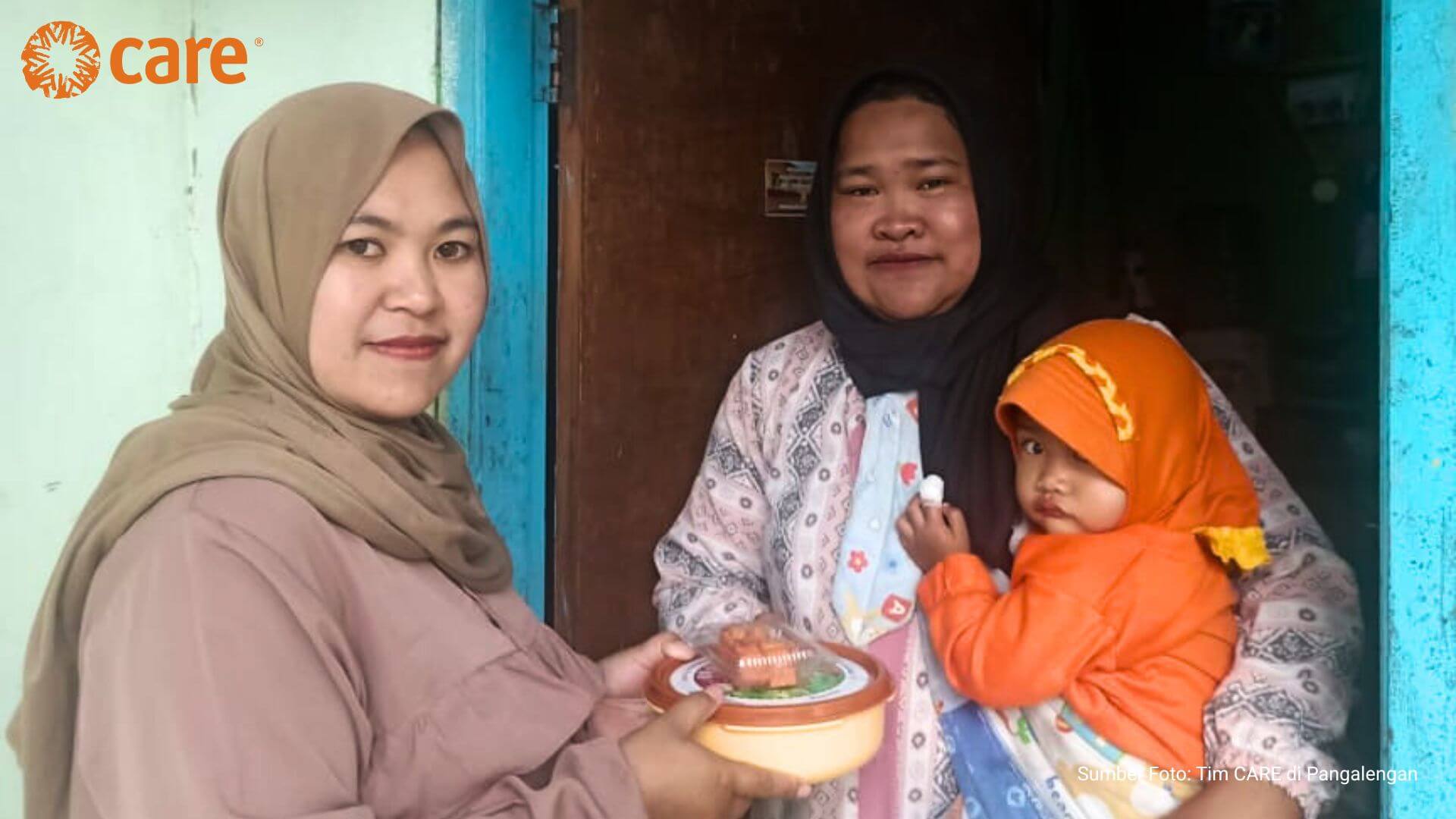In Sukamanah Village, Pengalengan Subdistrict, Bandung District, lies a small kitchen that carries a big hope: DASHAT (Healthy Kitchen to Overcome Stunting). Initiated by BKKBN, DASHAT is a community-driven program aimed at reducing stunting rates in Indonesia through empowerment at the grassroots level. This initiative has been embraced wholeheartedly by women’s groups, who mobilize their energy to support efforts in addressing stunting.
This community kitchen is managed by a DASHAT group consisting of six women cadres, representatives of posyandu (integrated health posts), the Family Planning program, and the Family Welfare Movement (PKK). Together, they share responsibilities in Provision Additional Nutritious Meal (PMT) for children suffering from stunting, wasting, and underweight, as well as for expected mother with Chronic Energy Deficiency (KEK). Their roles are divided equally: some purchase ingredients, others manage the budget, cook, or deliver meals to recipients. Some even monitor and ensure that every serving is finished, while also keeping detailed records and conducting regular evaluations to track the progress of the children and pregnant women under their care.
The women cadres are not working alone. They receive strong support from the village government in terms of facilitation and legitimacy, while their husbands provide encouragement and help behind the scenes, allowing the cadres to focus on their kitchen duties. This combination of family and community support has enabled DASHAT to operate smoothly and sustainably.
These women do more than just cook and prepare nutritious meals. They know each child and pregnant mother with KEK personally, tailoring each menu to individual needs for instance, preparing seafood-free meals for children with allergies or adding extra protein for expectant mothers. Families sometimes request variations in taste to make meals more appealing to children. All of these efforts share a single, simple goal: to ensure that healthy food is not only distributed but also consumed completely.
Beyond nutrition, the cadres also navigate social dynamics. When other children attempt to join in eating the PMT meals, the cadres take time to explain to families that these meals are specifically tailored for children in need, based on their nutritional requirements. In doing so, DASHAT becomes more than just a kitchen, it transforms into a space for social education, fostering family awareness and solidarity.
The Pengalengan DASHAT is also connected to local resources, such as nutrition gardens for vegetables, fish farming for protein, and organic waste management through Black Soldier Fly maggot cultivation, which is then used as chicken feed. Eggs from these chickens are incorporated back into healthy menus. This integrated innovation brings a sense of pride to the cadres, who have even showcased their healthy dishes at competitions, combining nutritional standards with local food wisdom.
Similar stories can be found in West Sumbawa, West Nusa Tenggara, and Nagekeo, East Nusa Tenggara. There, DASHAT is linked with parenting classes, gender sessions, and male engagement workshops. Fathers learn their roles in supporting family nutrition, women gain confidence in managing small food-based businesses, and children practice healthy eating habits. In Nagekeo, local produce from school gardens and women farmer groups enrich DASHAT menus, ensuring that families are not only nourished but also self-reliant.
While large scale approaches are often assumed to be more standardized and manageable, these experiences show that community based models can maintain nutritional standards effectively. Meals follow the Ministry of Health’s “four star menu” guidelines, which include carbohydrates, animal protein, plant-based protein, and vegetables or fruits in every dish. Menus are adapted to local tastes and cultural contexts to ensure that meals are not only nutritious but also enjoyed and finished. Oversight happens not from afar, but directly through women cadres who personally know and care for each recipient.
This approach reflects CARE Indonesia’s innovation adapting and strengthening existing government initiatives by integrating the PKK, posyandu, and Family Planning frameworks from the Ministry of Women’s Empowerment and Child Protection with nutritional guidelines from the Ministry of Health.
With support and collaboration from LPS Berbagi, BNI, and AMMAN, the program has flourished. The active involvement of local governments, village authorities, cadres’ families, and community partners has shaped DASHAT into a model of intervention that aligns with national regulations while proving effective at the community level.
A key lesson from this journey is that supplementary feeding programs should not be measured only by the number of portions distributed, but by the real impact on children and families. Through a women-led community approach, DASHAT serves as an entry point for behavior change, local food innovation, and family economic empowerment becoming a powerful pathway toward breaking the cycle of poverty.
Writer: Dr. Abdul Wahib Situmorang, CEO CARE Indonesia


